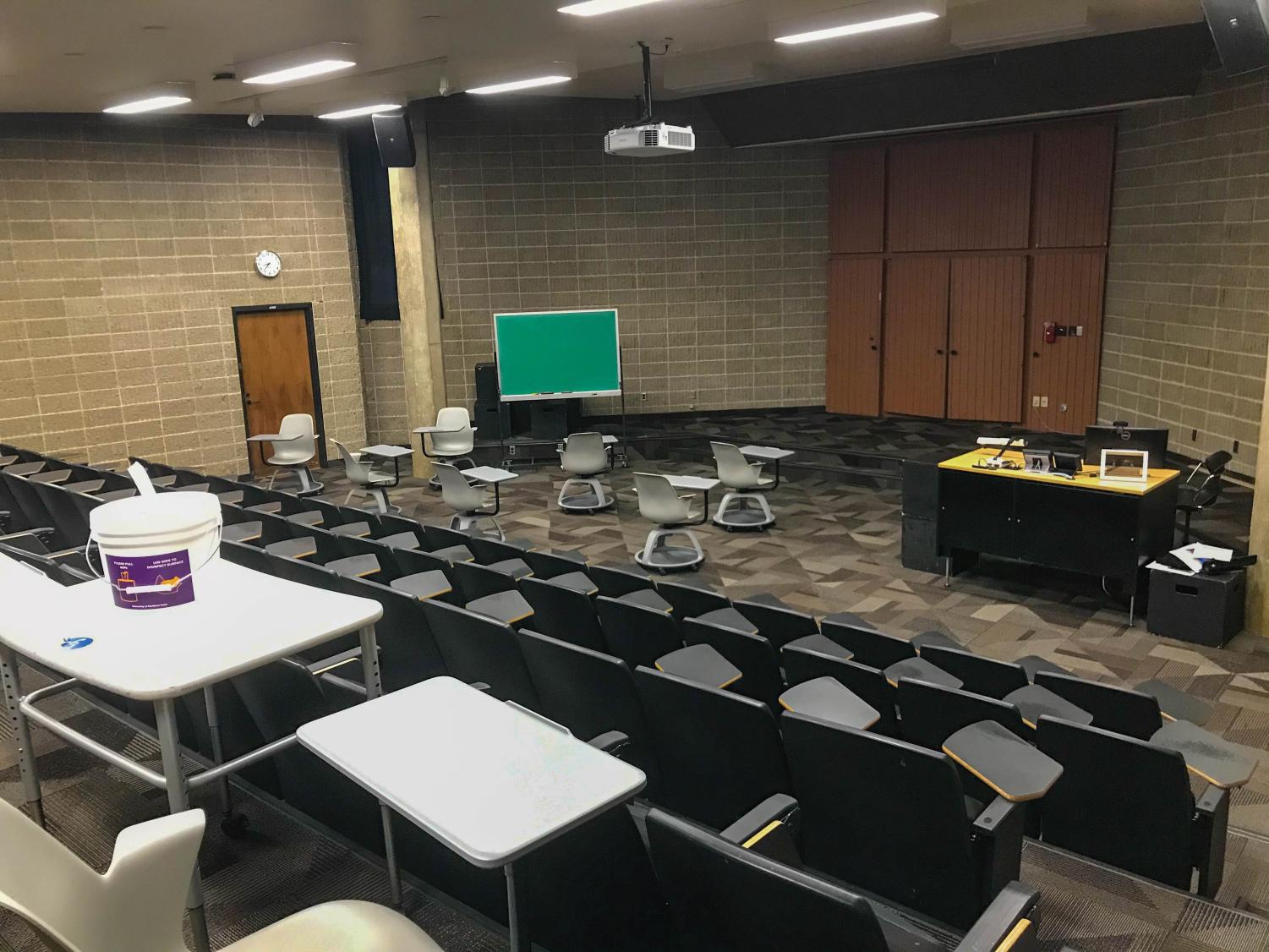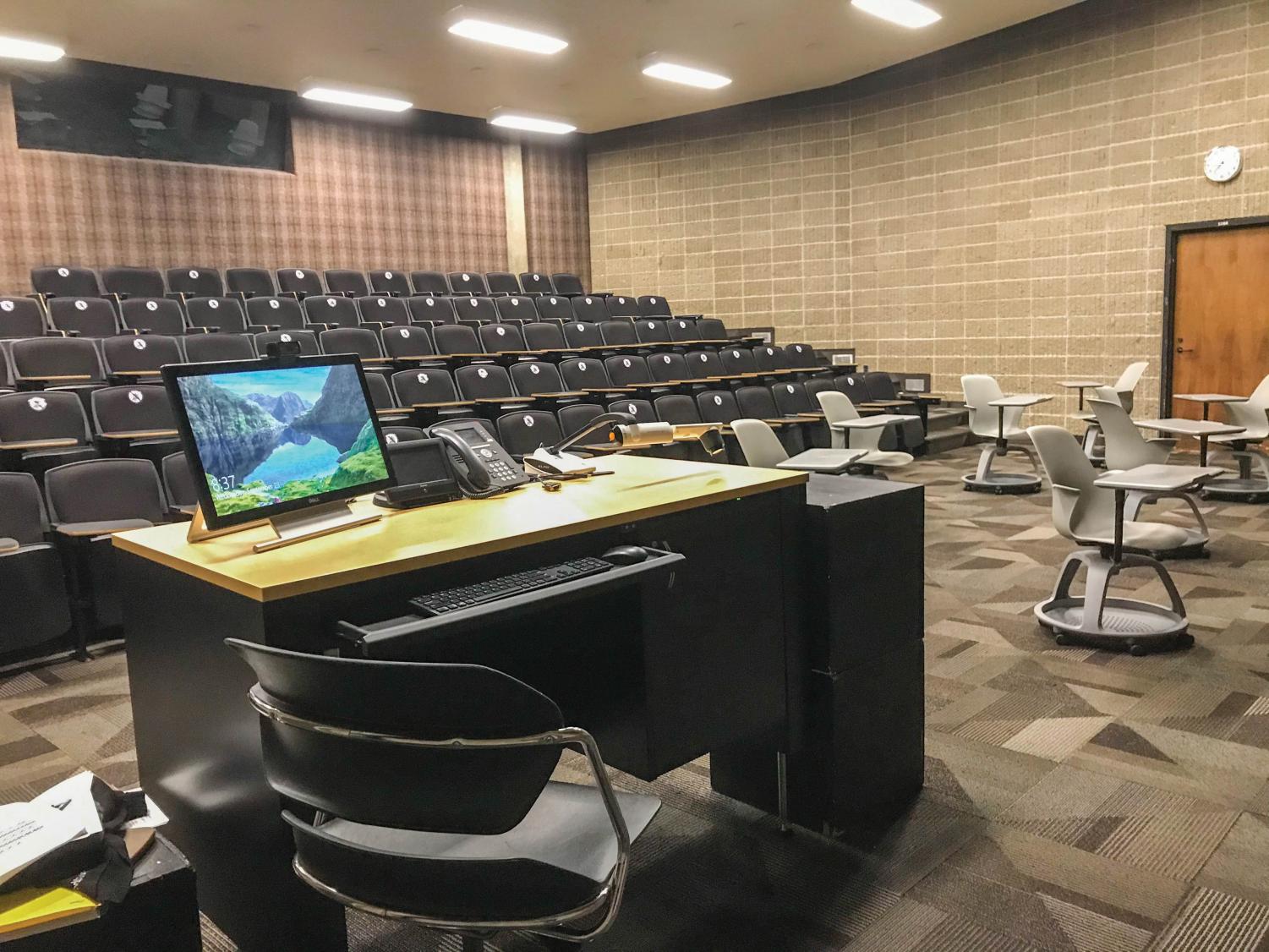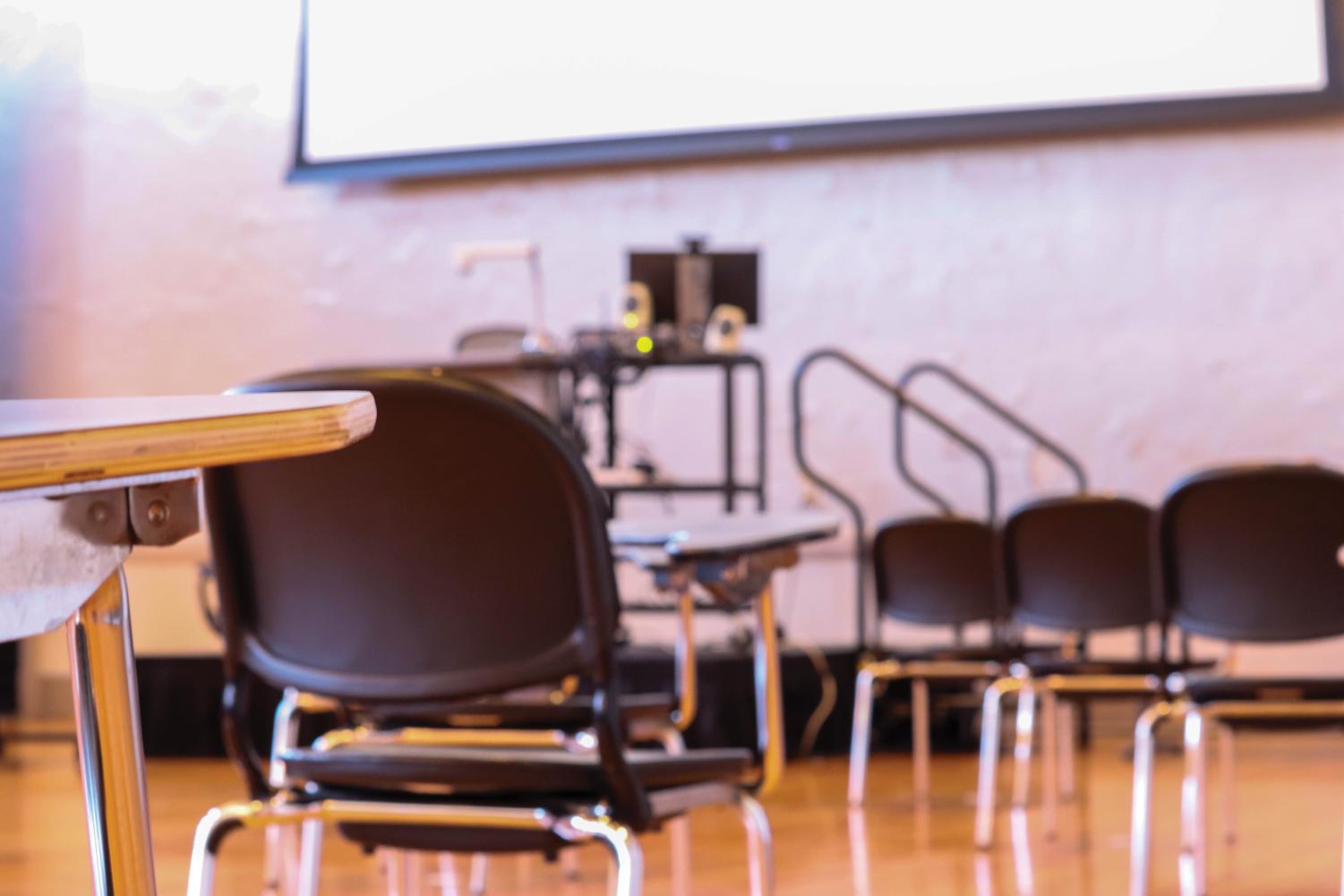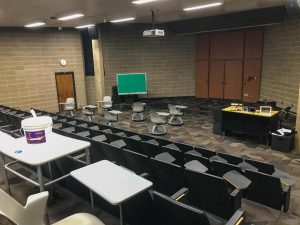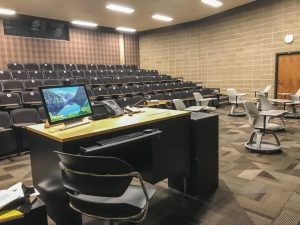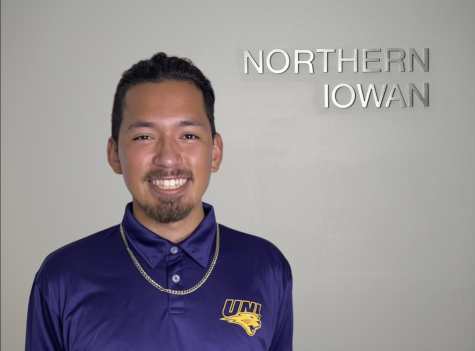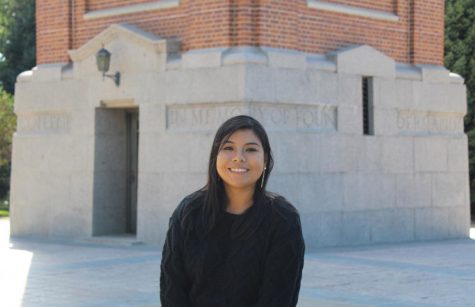Students clocking out
Apr 14, 2022
Students and faculty notice growing trend of skipped classes and burnout
As the semester is coming to an end, students and faculty are starting to see a growing trend of students clocking out from their classes before finals. This includes a different level of engagement from students including experiencing burnout.
Associate Professor and Director of the Interpreters Theatre Danielle McGeough recognized different levels of engagement and signs of burnout from students happening earlier in the fall while teaching an undergraduate course and saw it continue in the spring semester. McGeough now teaches graduate students, but still is seeing the same concerning trends in his classes. “I’m concerned about their mental health, emotional health or wellness or wellbeing.” McGeough said. “Opportunities to do things face to face have emerged more this year. I think that people have been so excited to take up those opportunities, but there’s things that we also maybe put on our plate while we couldn’t do those.”
McGeough shows empathy for students right now as many students have been seen carrying the burden of a rapidly changing world and not having the chance to experience what used to be normal.
“The challenge of that as a faculty member, staff member or administrators, we’re adapting to meet the needs of our students. That requires further innovation and adaptation, which takes even more energy and so it’s really hard,” McGeough said.
Jasmine McGee, a first yearstudent studying family services is also seeing this trend of students missing classes, and also finds herself missing classes as well.
“Sometimes I just don’t have the motivation to go,” she said. “Well, for professors, I would say be more understanding, because life does get in the way. Sometimes it is not an excuse. Life is not an excuse. So that’s what I feel for students.”
First year biology and public health major Julia Parcher shares some of the same experiences with McGee.
“My chem class started out with like 50 kids and it went down to about 30,” Parcher said. “Make sure that mental health is one of your top priorities and that your mental and physical health is a priority. Because if you’re constantly putting things over that you’re gonna feel nasty all the time.”
Between first years and upperclassmen there is a difference in experiencing college and being prepared. Third year chain management Christian Mosley, a transfer student from Upper Iowa University finds himself overwhelmed. “Maybe find a friend or some people that you enjoy in class, find times throughout the day or throughout the week really, kind of come together and study together or work together. That’s always been helpful for me.”
Professor of communication and media Richard Tews mentions that although his students aren’t missing his classes. There are students who have registered to his class that haven’t shown up since the beginning of the semester.
“There are kids on my roll who I’ve never met. They never dropped the class. They came maybe for the first day to get the syllabus. I’ve just never seen them again. So I don’t count them as having bad attendance, they’ve just never attended the course,” Tews said. “It is almost like they decided that they didn’t want to take the class and they just didn’t go through the process of dropping it.”
Tews mentions there’s a difference in scale this semester of students enrolling but not attending classes this semester. He emphasizes that there is a possibility in which students may be unaware of the process of dropping a course.
“Check-in on your goals and your priorities, just kind of make sure you’re still kind of in line with what you want to get out of your education.” he said “There’s no shame in taking a semester off and like figuring it out.”
First year social work major Lexi Gause feels an enhanced workload compared to her fall semester. Gause even noticed a trend of classmates missing in some of her classes after midterms.
“I feel like it can get a little bit overbearing, and when the workload increases in one class, it tends to that for other classes, as well at the same time. So when you have a lot to do for multiple classes, it can feel like you just need a minute to kind of recoup.” Guause said, “they need to just take a minute to kind of breathe. It’s kind of unfortunate that it’s that missing class, but sometimes it helps.”
Gause recommends for professors to “check-in” at the beginning of each class and acknowledging some of the other workload students may carry in other classes.
“How’s your mental health doing? How are you doing? Are you getting your stuff turned in, just checking in goes so far? That shows your students you are there for them and just being present,” She said.
Second year business student majoring in real estate and finance Judson Rikkers echos everything and recognized that his oral class has had a huge gap of students missing.
“There were six people there (in attendance). And it’s usually a class of like 25 people. So I mean, that’s a large amount of people,” Rikkers said. “The awareness of it is the most important part. You just have to recognize it. I mean as a student and as a professor you just have to know what you’re feeling is not crazy. You’re just a normal person that’s been working really hard for a few months like that happens.”

